|
So there I was, tramping the darkened streets of Niš, seeking medicine for my sick child. Do not imagine me limping with despair, but I did walk with a growing heaviness of step as certain facts made themselves clear.
The trip began well. We set out from Sofia and hit the Serbian border ninety minutes later. It was a ridiculously short trip to reach a foreign country, and by lunch-time we could stop at Kafana Kapica in Lukavica for the mixed meat platter and smoked beef. Niš was another hour north and west, where we'd arranged to meet my friend and colleague Artyom Trakhanov. Artyom is an artist and comic creator who specializes in horrified, yet determined characters rendered in chunks of massive black, as if stamped from carved wood. His pet project is called Slavic Nihilism, which, combined with the fact that he tends to position his camera above his head during calls, made me imagine Artyom as shorter and less cheerful than he actually is. Atyom led my family, his wife, and their friend around Niš, pausing for inspiration at each ugly patriotic statue ("a Deva with antlers!"). Of course, we talked about the situation in Russia. Artyom fled Saint Petersburg last year and now lives in Belgrade in an apartment building filled with a bunch of other "draft-dodgers" and an ironically pro-Putin Serbian land-lord. He just recently got a long-term residence visa, which we celebrated with Nikšićko beer, goulash, and artistic plans. More on those in the future. Ellie's digestive problems started on our post-lunch walk around the Niš Fortress. Pavlina nobly offered to take her home and let the rest of us go on, but when Maggie and I walked our friends to the train station and returned to the hotel, we found Ellie was still throwing up. When this sort of thing happens in Sofia, I know what to do: go to the pharmacy and buy suppositories.1 You don't want to vomit out your anti-vomit medication, do you? Then I went back out into the city, where my plans made contact with reality. The first fact which, like a block of inked cherry wood, impressed itself upon me was that pharmacies in Serbia do not work on Sunday evenings. Even the ones that google maps assured me were open were, in fact, not. I had no choice but to ask a human being for directions. The receptionists at our hotel told me there should be some 24-hour pharmacies (gestures) over there. I set off again, walking a circle from Sinđelićev trg to Kneginje Ljubice2 in search of lit, green crosses. Whatever Serbians with bellyaches do, it doesn't involve pharmacies. The three places that were even working sold nothing more powerful than diosmectite ("a natural clay that covers the intestinal mucosa"). Their other options ranged from activated charcoal to probiotics. These might have been helpful to my 8-year-old before she started vomiting every 45 minutes. I came back to the hotel after three hours of hunting with not much to show for it. My greatest victories were the successful purchase of an apple juice and the possibility for Pavlina to take half an hour of time to eat dinner while I read to Ellie. But actually, there's a bigger victory, which was my state of mind through all of this. A year ago, I would have compared what was happening (vomiting, no drugs) to what I wanted to happen (no vomiting, many drugs) and I would have despaired. Instead, I compared what I was doing (interrogating pharmacists) to what I would have done last year (giving up). Like one of Artyom's characters, I was horrified, but determined. If I didn't bring home the Golden Apples and the Living Water, I did bring home apple juice and smekta. Ellie stopped vomiting. Four days later. *** My observant readers might notice that this June newsletter has come to them in August. That's because my vacation arrived like a clap of thunder and suddenly I was in Greece. Boom! I was in the village. Crash! Sometimes there were twice as many children as usual. Bash! The time I had with my computer went to wrapping up Fellow Tetrapod and editing The World's Other Side. Yes, the serialization of Fellow Tetrapod is done. The whole thing is online for free, and you can read it here. If you want one big, convenient .mobi or .epub file, those are here. I would be very grateful if you could tell me what you think. I plan to edit the story once more than publish it on Kindle Unlimited, so whatever advice you can give me would be of great value and use. I'm also spending my time editing a story I thought I'd finished ten years ago. This is The World's Other Side, an alternate history in which the Gondwanans conquered the Northern Hemisphere. Five centuries later, Eurasia is a single enormous Gondwanan colony, but North America is a jigsaw of native nation-states. The story takes place in the struggling Ilinwa Republic, where a young man chooses between love and terrorism. It also has lightning-guns and flying cars. Check for it on Royal Road at the beginning of October, or my Patreon at the end of September. *** And I read some books The Hitchhiker’s Guide to the Galaxy: Hexagonal Phase: And Another Thing... by Eoin Colfer It's a story. Some interesting bones were there, although Colfer didn't seem willing to extend them. Instead he made lots of references to the previous Hitchhiker's Guide books. Buy this audio production only if, like me, you get shivers listening to the Journey of the Sorcerer. Resolved: Uniting Nations in a Divided World by Ban Ki-moon I wanted to know what it's like to be the UN Secretary General, and I got my answer. It's like constantly keeping up the appearance of being bland. Moon, in his own words, works hard, builds consensus, and avoids crisis. I do appreciate his use of the word "ulcerous" used to describe his work, and I enjoyed some of his diplomatic tricks. Now I know how to force an American president to sit through other people's speeches; schedule the president's speech last. Waybound by Will Wight What to say about the last book in the Cradle Series? I'm sad to see it end. Don't read this one until you've read the others. At that point, you'll have to read this one no matter what I say. I do wish that Wight had kept the these later books as tight as the first ones. Waybound (and Bloodline and Reaper) had so much going on its plot becomes like a checklist. We gotta kill this monster, then that monster, then some space monsters, and then we can relax. The questions of "how can a group advance together?" and "how do you stop yourself from becoming a monster?" are sort of answered, but only as engineering questions. Wight did loosen up and have some fun, but only outside of the goal-oriented segments. Awake in the Night Land by John C. Wright I re-read this after a conversation with a friend reminded me of the dark fantasies of R. Scott Bakker (The Prince of Nothing etc.) As angry as I still am at the rotten way that series developed, I still wanted some overwhelming odds and crushing black hopelessness. "Awake in the Night Land" is a good fit. The first story in the book is a work of art. I actually drew a sketch of Telemachos lying on the gray ash, surrounded by Silent Ones, one hand reaching toward a star. The other stories are worth reading, though repetitive. The fourth especially has scenes that are beat-for-beat copies of the first. "Silence of the Night" should have been folded into "Awake in the Night" to make a longer, deeper story. But anyway, I got my dark fantasy fix. Police Your Planet by Eric Van Lhin (Lester Del Ray) When I started this book I thought "for this sort of cyncisim you usually have to turn to the Strugatskies." We get American at the end, though, when the protagonist beats up his girlfriend and explodes some civic infrastructure for reasons of symbolic nation-building. These misdeeds might have been made to work (a burned-out policeman struggles with his belief in order and his hidden kink for mayhem?) but they didn't. The Making of a Chef by Michael Ruhlman I read this one after The Soul of a Chef, and it might be better to reverse that order. The Making of a Chef focuses on Ruhlman's experience at the Culinary Institute of America, while The Soul of a Chef expands outward into the restaurant business. Reading The Making of a Chef, I was mostly impressed by how much Ruhlman remembers. All the details about who said what and how exactly to grill that. Maybe he took good notes. Anyway, there are some fine characters, including Ruhlman himself with his "I'm just as much of a cook as you" machismo. I enjoyed that, even though I don't think I'll be able to replicate any of his kitchen techniques. Foundation's Edge by Issac Asimov The setup was great: a young politician, outraged at the plot holes of the previous Foundation books, finds himself teamed up with an elderly philologist on a hunt for the mythical human homeworld. But actually! Sinister telepaths! There is some fun to be had in watching Asimov write himself into and out of trouble, but he didn't care to tell us about mind-reading assassins and interstellar political intrigue. Instead, we get "the chair was antagonistic during my faculty meeting" and "what I did on my vacation in Bali." I didn't dig joining the hive mind either. Dungeons and Dragons My first Hollywood movie in quite a while, and it wasn't nearly as bad as I expected. I would have preferred more daring humor and magic, but there was a story there, and it was rather sweet. And I re-watched Princess Mononoke with Pavlina and Maggie. This time, it was the music that blew me away. The ominous swells of the strings under the contemplative tootling of the woodwinds. Like a cursed god heaving in the under-story. See you pretty soon. I'll write the July newsletter as soon as I can. 1 They are euphamistically called sveshtitsi in Bulgarian. Little candles. 2 In Bulgarian romanization, that would be "Sindzhelichev trag" and "Knyaginya Lyubitsa." Between the two versions, you can probably figure out the pronunciation.
0 Comments
Fellow Tetrapod (third draft) is finished. If you would like to read the whole thing, please find it here. Then tell me how I can make the story shorter and better :)
I was recently directed back to Garrison Keillor, who hosted one of the two radio shows I listened to growing up.1 Now 80, he writes a very nourishing substack. Here's a taste: Happiness is circumstantial, bliss is brief, joy is for angels and small children, contentment is fragile and easily interrupted, gaiety doesn’t happen until eighty, and for jubilation you need to find a good roller coaster and someone to ride it with you and scream, but cheerfulness is a choice, like choosing chocolate rather than a spoonful of mud. Take the chocolate. And it's funny he should say that, because last Saturday I got exactly that choice. We were with Pavlina's employees on a beautiful spring morning, planting trees for "a New Forest for Sofia." When I'd heard of the project, I'd imagined going up into the mountains to plant rows of Douglas firs like the Communist brigades of old. As we drove deeper into the flat valley north of Sofia, I supposed we'd be rewilding a riverbank. But no, we parked between the wheat and canola and tramped out to join the other teams in what was clearly last-year's cornfield. I suppose someone is just buying whatever land they can and putting trees on it. I'm not sure that will work, but I did see an oak from last year, about two feet tall and surrounded by grass and wildflowers. So far, nobody has driven a tractor over it. Pavlina, Maggie, Ellie, and I were all issued gloves and (for the adults) shovels, then led out into the field where the rest of Pavlina's team was replacing green-painted markers with trees. The past week had been gray, chilly and drizzly, and so would the next. But on Saturday, the clouds sailed slowly past us, and did not pause to dump their water. They set forth toward the Balkan Mountain, casting shadows over us like someone was twisting the sun's dimmer switch. The breeze was strong. You couldn't imagine a more perfect day to work outside. I thought it would be most efficient if I dug several holes at once and then came back and filled them in. How wrong I was. One of the organizers came and told me that the soil would dry out that way. Break up the clumps of dirt and pack them around the sapling so there aren't any air pockets under its roots. Don't put all the soil back in, so you can get a little dip in the ground to catch rainwater around the tree. "I keep explaining this, but there are a lot of idiots —I mean volunteers —who don't listen." I crouched down despite the protests of my hamstrings and pushed my fingers into the dirt. Before I continue, I should take a moment to explain the concept of a skalichka. A skala (accent on the second syllable) is a big rock or a boulder or a cliff. A skalichka, a "little big rock,"is a Bulgarian treat traditionally made by bakeries from yesterday's leftover cake, molded into a cone and covered in chocolate. Think "aerodynamic brownie." Anyway, while Pavlina, 10-year-old Maggie and I worked, 7-year-old Ellie found worms to play with. Through the process of natural selection, the worms in our yard have learned to fear her tread. They scream and run for cover, but the worms in this field north of Sofia were more naive. "Look at 'im wriggle!" bellows Ellie as she thrusts her cupped hands toward the disgusted face of one of her mother's team. "He's so pink!" And, "Look, Dad, when I squeeze the dirt and squish it, it turns like clay. Look at the clay, Dad! Look!" And the brown, amorphous object in her hand went right into her mouth. Now, you know what really happened. I, however, have formed certain expectations about my daughter over the last seven years. She uses her hands instead of a kleenex. She tried to keep a family of oranges under the couch in a warm nest made of her laundered clothes. Once, when I was walking ahead of her after a rain shower, I heard "puddle splash splash! Sluuurp!" She's gross, is what I'm saying. My mind was ready to accept the fact that she's just put a clump of dirt in her mouth and bitten down on the chewy worm center. I spoke not with anger or shock. I pleaded, "Ellie, don't put dirt in your mouth." She looked at me. "But, Dad, it's a skalichka." The mud was in her other hand. To be fair, there was no hand-washing station in sight, and that skalichka really was probably 30% dirt. It would probably do her immune system good. I still have a ways to go on my journey to cheerfulness. When presented with chocolate and mud, I chose mud. I assumed the worst. Ellie, however, was wiser than me. Wiser than any of us. She chose both. Hwuh! What else has been going on? My family and I got to hang out with the fascinating and friendly paleontologists Vladi Nikolov and Steve Brusatte, I attended elementary school talent shows, took some good walks in the forest, started doing pull-ups, and I was happy to hear someone wants to make a fan fiction of Fellow Tetrapod. Watch that space. Fellow Tetrapod itself still refuses to end. I had to go down to two posts a week, but we are still inching toward the finish line. I finally got one of those Royal Road readers who just comments with "thank you for the chapter," which means I must have made it to the big time. And I read stuff: The Claw of the Conciliator by Gene Wolfe I re-read The Shadow of the Torturer last month and found that since I'd read it the first time, I'd grown up some and I enjoyed the book more now. The same is true of The Claw of the Conciliator, although maybe not quite so much. The second book of the New Sun is faster-paced than the first, and I don't actually like that as much. The problems don't seem as hard to overcome. But there is more execution! Career of Evil by Robert Galbraith It's too long, and a bit soapy, but I haven't seen anyone do a better job with people telling each other exactly what they are most afraid of hearing. The heavy scenes spin perilously, and I caught myself saying out loud, "Oh no! Not the Man in the Beanie!" Switch Bitch by Roald Dahl Often entertaining, occasionally sexy, but sometimes kind of mean. Mostly, though, these stories are just bizarre. They're essentially long-form dirty jokes. In my opinion, the middle one was funniest. That Hideous Strength by C.S. Lewis Remember the ending that Tolkien tacked onto the Lord of the Rings where ancient evil re-branded itself as modernity and cut down the fine old trees of the Shire? This is a whole book of that. It was interesting to see what worried conservatives right after WWII, but I kept looking for and not finding compassion or humor. The philosophical moralizing got in the way of the characters, plot, and - worst of all - world building. "Macrobes" is a cool idea and I wanted more, darn it. Out of Africa by Isak Dinesen Beautiful, thoughtful language describes a failing farm in colonial-era East Africa. I was feeling like I wanted more after reading Going Solo and Wind, Sand, and Stars, and this hit the spot. Acquired Tastes by Peter Mayle I love a book that tells me about what's out there in the world for me to enjoy, and how to go about doing it. I was given my first cigar on the night before my wedding. If anyone ever gives me another, I'll know what to do with it. An Immense World by Ed Yong What's it like to be a nonhuman animal? Let's see how we can find out! Here's a catalog of all the ways we've found that animals experience the world. That's interesting, and what's more interesting is the experiments we did to figure that out. 1"A Prairie Home Companion." The other was "Car Talk." See you next month "I'm going to Blagoevgrad," I told my friend.
"Blagoevgrad? Really? My family is from there. We visit twelve times a year." "Wonderful! So you can tell me what there is to do in Blagoevgrad." "...nothing." So there I was, tramping up and downs the hills of The City with Nothing to Do, examining the tiny wasps and natural gas heating stations, skirting the graveyard, and sucking on lilac blossoms for moisture. It was a convention for IT entrepreneurs, and Pavlina was sick. She took good notes at the panel discussions and networked because she's a pro, but she needed drugs for her headache and cough. Going out to get them for her was no great sacrifice because it was a beautiful spring day in Blagoevgrad. Following Google Maps, I crossed the busy road on the edge of town and walked up to a cluster of apartment buildings that crowned a hill. Beyond the blooming quince trees, the town spread across the river Struma with the southern face of Mount Vitosha dark in the distance. One of the residents had cemented a pull-up bar between the quinces, so he could enjoy the view during his exercises. A couple of back-and-forths with my eyes on the phone confirmed it: there was no road down the hill to the pharmacy. What there was, was a footpath down the slope. Knee-high grass swayed between sprawling briers. To the east loomed Rila Mountain, snow still pouring down its shoulders. Tiny black wasps bobbed in the air. Next time, I'll take water next time, or at least think to buy some at the pharmacy. And that's the most interesting thing that happened to me in April. Otherwise, I read, I wrote, I swam, I got a virus that made me tired all week. I'm trying to get into more trouble in May, though. Hold tight. About that writing. I was under the foolish impression that I was almost done with Fellow Tetrapod, and only needed to write over a few weekends to push through to the end. Ha ha. Ha ha ha ha! The fool steps off the cliff, eyes on the rainbow that recedes even as he falls. Maybe I'll be done with it by July? Anyway. I did read a lot. Travelers in the Third Reich by Julia Boyd My favorite kind of history shows what it was like to be somebody somewhere. In this case, it's what it was like to be a tourist in Nazi Germany. Through the tourists, we also get a pretty good look at the German populace. "She changed her politics like an animal changes its coat with the seasons." Self Help by Ben H. Winters It has its moments. Then it loses them. I appreciated the sense that the author didn't know what was going to happen next, but there were several places where something interesting might have happened, but then the author got scared. In the end, we get nothing but a shrug of the shoulders. Wind, Sand and Stars by Antoine de Saint-Exupéry So, this is what it was like to be a pilot in the 1930s. Slipping off the glass dome of a cyclone and becoming a person who could no longer exist when you're back safe on the ground. Dying of thirst after a crash-landing. Listening while a fascist and a communist try to conduct a dialogue. Disciple of the Dog by R. Scott Bakker I loved this sweaty, grungy story. There's some kind of murder mystery, yeah, but mostly this guy is just stumbling around having weird experiences and then...REMEMBERING them! Woo~oo! I wish Bakker was still writing. Plato's Republic by David Roochnik I enjoyed this summary of The Republic and the last 2500 years of commentary on it. I did chafe at the basic assumption is that Socrates was never simply wrong, but the metaphor of the hydra, the lion, and the man is well worth the price of admission. Reclusive Mage by Inadvisably Compelled I enjoyed and would recommend the first three books of this series. Not this one. The stakes just aren't there any more. The big bad we've been following since the book one just decided to give up. The love interest went from from "girlfriend" to "pregnant with second child" over the course of a single book, almost entirely off-screen. Nothing kept happening. I read with one eye on the "percent read" number so I could see how close to the end I was getting. I get the impression the author did too. Going Solo by Roald Dahl Roald Dahl, a completely inexperienced young man in Tanganyika on the second day of World War II, sees Mdisho, his Nyamwezi manservant, returning in the middle of the night armed with a scimitar and covered in blood. Mdisho had just murdered a German civilian, and Dahl envies him. Now there's a story! The Captain by Will Wight This story tries and tries to begin, but it never really gets there, even by the time of the climactic final battle. What I liked about Cradle was the way it showed skill development. This series could have been just as good, but about team building. Except team building doesn't work like that. The Captain was too much like a video game, including the literal video game in which people who should be learning to trust each other fight one-on-one to see who is the best. Finding Moon by Tony Hillerman I was reminded of The Inhabited Island by the Strugatsky Brothers. There was the same dis-connect between how the main character saw himself and the stories other people told about him. It's not so much about the main character becoming a good man as digging up the good man he already is. Dan Davis History This is a Youtube channel that does for Bronze Age Europe what Real Engineering does for high tech machines. I loved to hear about what Ötzi ate for lunch. And the Upheaval I bought a subscription to N.S. Lyons's substack because he's a political commentator who does more than complain. He finds plenty of problems, don't get me wrong, but he has a direction he wants to go. I was convinced to give him money when in an interview he said this: My impression is that people today, and especially young people, are looking above all else for solid ground; for shelter in the storm. They are looking for the real and the eternal, for that which will not melt into air. They are looking for authority they can trust, when authority has everywhere else dissolved. And they’re looking for loyalty, community, and love that does not falter. Me too. Here's a silly story. I'm a permanent resident in Bulgaria, which means I need to renew my D Visa and get a new ID card every five years. That is why I was waiting with Pavlina and Ellie in the bureaucrat-lined corridor of the Migration Directorate. A line of people waited outside in the cold, and another line of people waited inside the building. We stood alongside a Russian and a group of Koreans before windows 3 and 4. This was probably the right place, but who could be sure? I haven't had a good time in the Migration Directorate. I've been told off, yelled at, fined, and generally confused. For a while, I had an immigration lawyer to help me, but he retired. The last time I did this was five years ago, which means I didn't remember what documents I needed and anyway there had been a change of procedures. So I just brought everything. Old ID card and passport, obviously, and then marriage certificate, bank statement, proof of residence. Photos. Copies of everything! I was riding high on a wave of anxiety. The borders of my vision constricting, I counted and recounted the documents. Passport. Copies. Bank statement. Copies. Passport. Had I lost my passport? What if they yelled at me again? "Korea?" called the woman at window 4. We were next. "Get out your ID card," said Pavlina, and I tugged my wallet out of my wallet. Bank card bank card American driver's licence library card. Library card bank card. I flipped through them mindlessly, eyes failing to catch on the pink and blue of my ID card. And again. Library card driver's licence. But my ID card was always there. My vision constricted further. I couldn't remember taking my ID card out of my copy machine. It must still be there, at home. It would have been nice to just faint. Let the darkness close in and collapse. Then all this could be somebody else's problem. Just giving up and going home would have been nice too. But Pavlina had taken time out of her day to come with me. Ellie was there. There was a Korean supermarket across the street, and we'd promised ourselves lunch there after this was all over. I had to deserve that lunch. "SASht?" That's the Bulgarian version of USA. We were pushed forward and onto the mercy of the lady behind the window. "I forgot my ID card." "He left it in the copier." With very damp hands, I shoved the paper copy under her window. "Calm," she said. "Do you have your passport?" I did. She gave us a form to fill out. What were my parents' dates of birth? Here's the stamp for your passport. Whoops, my shift's over. Here's the next window-lady. Now look into the camera. Boop your bank card on the reader to pay. Your new ID will be ready by the 25th. When you pick it up, bring your receipt, your passport, and your old card. You'll bring your card next time, right? The Migration Directorate had changed its procedures, indeed. Mercy flowed like water. I stumbled out of the place burbling thanks to everyone, and followed Pavlina and Ellie to the Korean supermarket. We bought steamed buns for lunch. They were half-frozen and bad, but that's not the point. The point is that anxiety is the opposite of useful. It's a lesson I keep having to learn. I suppose I should be grateful I get so many opportunities to do just that. In other news, Tim Morris, the illustrator for Fellow Tetrapod, has collected together all the pictures and species descriptions so far in the story, with some of his own analysis. You can see that here.
Otherwise, I mostly just wrote Fellow Tetrapod. There was a big hump to get over (the bridge between the end of Act II and the beginning of Act III) and I had to throttle down to two posts a week for a while. But now we're over the hump and back to three posts a week. I won't jinx anything by making a prediction, but the writing is easier and the end of the story is close. As always happens when I'm nearing the end of a project. Another project beckons. The world map and language for Ghost of Mercy continue to develop, as you can see on my Patreon. And I read some books The Lake Wobegon Virus by Garrison Keillor It's welcome political wish-fulfillment. What if neighbors were only being torn apart by a virus that infects their brains and makes them say terrible things to each other? That would be nice. I had the sense here that Keillor was packing up Lake Wobegon and putting it away, but if that was ever his intention, he snapped out of it. Don't worry, the little town is okay at the end. Scale by Greg Egan I gave Egan another chance after The Book of All Skies, which was lazy and obnoxious. Scale, I was happy to find, wasn't obnoxious, but although it wasn't exactly lazy, it was thin. The speculative physics of the book is interesting, but then there is quite a lot of biological hand-waving to get us to the point where we have tiny, dense, very fast humans. They're all genetically related to each other and they all speak different dialects of the same language. But it isn't easy to make cities accessible to all "scales" of people, and then an evil corporation joins forces with the corrupt government to leverage a new technology than can upset the balance between the scales. The story is all there, but it's very bare bones, the minimum needed to keep us interested in the leptons. All Things Bright and Beautiful by James Herriot Just as sweet All Creatures Great and Small, though a bit less cohesive. The stories here have less to do with each other, and some were episodes from before Herriot's marriage that didn't make it into book one. World War II casts a deep shadow over everything, but Herriot says he doesn't want to talk about that. I understand. My favorite story was about the dead parrot ;) Blue Shoes and Happiness by Alexander McCall Smith What I like best about McCall Smith is that his characters are never entirely wrong or entirely right. Mma Ramotswe is right about Mma Makutsi's shoes, and Mma Makutsi is right about Mma Ramotswe's weight. But the shoes and pretty and Mma Ramotswe doesn't like dieting. So sit back in the chair you didn't ask for and enjoy life. What if? 2 by Randall Munroe It's not as good as the first one. There are some good scenarios that explain interesting physics concepts (like what if the solar system was filled with soup?), but Munroe spends far to much time talking about law. The law isn't as interesting as physics. Roadside Picnic by Boris and Arkady Strugatsky I read this back in college and loved it, but I like Bormashenko's new translation even more. Red's scummy humanity shines through better. And as for the storytelling! Aliens dumped a bunch of god-tech on Earth, the government locked the area down, treasure-hunting "stalkers" arose to smuggle this stuff out (or get messily killed by it), the government hunted the stalkers while it pursued its own research, the researchers hired stalkers as assistants…and that's where the book begins. You have to do a lot of work to get up to speed, but once you do, things are going very fast, indeed. Wish Lanterns by Alec Ash I like "what's it like" books. This one is "what's it like to be a thirty-something in Beijing?" It follows eight people from their childhoods in the eighties to the middle of the twenty-teens. These are personal stories, and the pattern they show is incomplete. Of course they don't show you what life is like in China, but they do show you what it's like to be one of these millennials: silly, angry, exhausted, moving forward. The Shadow of the Torturer by Gene Wolfe I read this maybe ten years ago and did not get it. This second time, I was enough of a grown-up to see what Wolfe was doing. It also helped that I knew what the hell was happening. A young man in the distant future goes out to seek his fortune. Traveling performers invite him to join their band. He goes to a pawn shop to buy a coat and falls in love with the proprietor! But now he's been challenged to a duel! The pawn shop girl takes him to pick his dueling weapon and gets them into a chariot race! Their chariot crashes through a shrine and now this guy has possession of a holy relic. And on and on. Each of these stories does actually end, and the things that look like random chance aren't. At least not all of them. There's some kind of plan amidst this chaos, if you can find it. Wyrd Sisters by Terry Pratchett This is the first real witches book, and it has some cracks. The story doesn't really start to tick over until halfway through, but after that everything does come together. Until then, enjoy Granny Weatherwax and Nanny Ogg. They're perfect, and worth following around. I was sitting in the spare room of my mother-in-law's office on Gurko street, writing angrily to another writer. It was Wednesday, and I only have so much time on Wednesdays, but here I was, pouring my bitterness onto a page that nobody else would ever read. That's a good thing, believe me. Long-time readers of my newsletters will know that I have a tendency to "get bitten" by things I read. I know it's silly, and I am working on it, but the written word still gets under my skin. The current literary irritant came (via substack) to my inbox on Tuesday night, when I was tired and my defenses were down. It was another one of those damn rabble-rousers. "Now is the time to panic," it said. "Killing babies in their cribs," it said. Existential risk! Which existential risk, exactly? It doesn't matter. You've read stuff like this before. If you're like me, thinking about the end of the world doesn't do you any good. In fact, it does me bad. I'm moody and uncreative, I snap at people, and I have trouble sleeping. So what do I do about it? The first thing I tried was an approach one of my readers used on me. He started following Fellow Tetrapod after a positive review raised the story's profile on Royal Road, and he seemed to enjoy what I was writing. But then he said he was going to start skimming until General Graa reunited with Mr. Grumbles. I'll back up and offer some context in case any of you aren't up to date with Fellow Tetrapod: some misguided staff members at the human embassy decide to steal the pet of a powerful alien diplomat. Shenanigans ensue, and now here was this reader was telling me he didn't like the alien being separated from the pet. That's the central conflict of the story. I reassured him that Mr. Grumbles would be reunited with General Graa at the end and asked him what it was exactly that bothered him. He told me he was reminded of a real story he'd read about a someone whose friends had kidnapped and lost their dog. My reader had, in other words, been bitten. He wanted to make sure he could trust me not to bite him again in that same tender place. Was he being too sensitive? You could ask the same question about me. Taking to my writer, I tried to say the same thing as my reader had said to me: "I like your blog, but I'm not going to read any more articles about existential risk." I could have said more. In fact, a friend asked me why I didn't. I didn't say more because I don't think it would have done any good. The metaphor I use in my own head is that a writer is the host and the reader a guest. You invite a stranger in, you sit with them, you serve them something good. Even if you don't have what they need, you're gentle with them. Likewise, as a guest, you're respectful. You might say "no existential risk, please," but you don't hand your host a list of demands. If this isn't the house for you, you just leave. I received no response from my writer, and next week there came another article about existential risk. I felt like a fool for paying over $100 for a year's subscription to that substack and then cancelling it, but I considered how foolish it would be to continue to get another one of these things every week. Call that hundred dollars a lesson, or at least a sunk cost. I can't say that I "just" left because of all the embarrassing angst you read above, but I did leave. I have better places to be. There has been a lot of talk about overly-sensitive readers and overly-political writers. I wonder if we can't frame this problem more productively as a breakdown of trust. Can I trust writers to make me feel welcome? Can I trust readers to not to spit my work back into my face? Or is this metaphor not to your liking? Gentle reader, what do you think? *** In other news, Fellow Tetrapod has rounded the corner into the home stretch, still on-track to end sometime before Easter. It has not one but two reviews now, the second of which compares the story favorable to the work of the Strugatsky Brothers. There's very little room for improvement there, as far as praise goes. There's now quite a lively conversation going on in the comments, and I cordially invite you to take part in it. I'm also thinking impure thoughts about my new project. Watch out: I have a map and a conlang for this one. *** And I read some stuff Lake of the Long Sun by Gene Wolfe Patera Silk gets in deeper trouble as a civil war and foreign invasion coalesce around him. Not that he's aware of that - we readers struggle to keep up with events just as much as he does. Silk's in danger from spies, soldiers, robots, hyenas, robots again, petty dictators, and giant fish, not to mention all these beautiful women. But he does the best he can. Wolfe is such a pleasure to read. Fun fact: the cover is my favorite in all science fiction. The Hitchhiker's Guide to the Galaxy: The Quintessential Phase by Douglas Adams. The radio play was not nearly as good as the book. A lot got cut, and the tacked-on happy ending didn't work. I mostly listened to it because I love the theme music and so I can read and enjoy the book that much sooner. I owe this book a lot, from the way I appreciate a sandwich to the way I visualize the higher dimensions. What is it that's printed on the world-destroying tool wielded by petty-minded villains? "Panic." The Book of Guys by Garrison Keillor There is some violence in these stories, much absurdity, and yes, some bitterness against women. But they're honest and funny. I owe a debt to the friend who reminded me about Garrison Keillor, whose radio show played a big part in raising me. And I seem to have turned out all right. By the way, Keillor's substack is gracious and sweet, and a lot of his books are available free with your audible subscription. Check them out. Fifth Sun: A New History of the Aztecs by Camilla Townsend This book was recommended to me by Razib Zhan's Unsupervised Learning substack. It was fascinating and even inspirational (keep an eye on my upcoming fantasy story for Aztec influences), and the author clearly loves the subject matter. There were places where I wanted more: what archaeology tells us about pre-conquest history, say, and more from post-conquest written sources. I am a bit suspicious about the lengths Townsend goes to excuse any of the Aztec practices we might not like, while the Spaniards are portrayed as brutal pirates and slavers. But what else can one expect? And a history that leaves you inspired and itching to do more research is a good history. The Talented Mr. Varg by Alexander McCall Smith I read this one in the rocking chair in my parents' living room, chuckling to myself. Ulf Varg continues to try to be a good man in a ridiculous world. His dog is still depressed and his dates don't go very well at all. But at least Blomquist likes him! Go, Blomquist! See you next month. (from my Patreon)
There was an urge to panic. My body wanted to go vertical and stick my head out of the water while my arms flailed. I wasn't in danger of drowning, I told myself. I was just trying to learn how to breath on my left side while doing the crawl. The idea came to me at a hotel pool in early December with a shock of terror. I had a long-time student who liked to swim, and I wanted to get the sort of exercise you can't get in a hotel pool. My student was learning techniques for long-distance swimming. Maybe he'd tell me about them. We could have lunch and coffee afterward. Maybe we'd be friends. That's the sort of weight I tend to put on plans like this, which is why they're so hard to act on. Listening to that fear, I'd close myself up in the attic of my apartment. But other people keep us sane. I needed1 to get out more. Some exercise wouldn't hurt, either. So, there I was in Sofia's "Palace of Sport," failing to breath bilaterally. I'd take in a breath under my right elbow, stretch my arm, pull it under me...two, three...and I'd remember a moment too late that my face was supposed to be under my left armpit now. What was I doing? Why wasn't there fresh air in my lungs already? Where had all this water come from??!? The Palace of Sport is actually just around the corner from my office and admission is 8 leva. I'd wanted for years to establish a routine of going there, but only managed to do it once or twice. It just seemed like such a drag to get my swim stuff together and go there and change. The showers are cold and the bathroom is colder. "Here, flip-flops and swim hats are worn," demands the little old lady at the desk, and you'd better not forget it. And then, what? You splash back and forth for a while? When do you stop? There's a clock on the wall, but I'm so nearsighted, I can't read it. What if I spend too much time in the pool and miss my next class? Worse, what if I haven't spent enough time in the pool and I'm bored? What are you supposed to think about, there in the chlorine, one lap after another? Bilateral breathing! That's what you think about. "Now we are men," my swim-buddy as we exited the frigid showers. And, you know, he can see the clock without glasses. At lunch, we talked about our kids and long-distance swimming techniques. The proper way at which elbows should be bent and wrists twisted. Kicking is not so important for long distances. What's happening with the social contract between China's government and its citizens? How about the US? The EU? How do we get our kids to read more? On Tuesday nights I dive into bed, exhausted. On Wednesdays, inspiration sparks between the new connections I've made. Take a deep breath, and stretch your arm into another stroke. ~~~ In other news, Fellow Tetrapod continues with new weird creatures every Monday, Wednesday, and Friday. This week, you can get the Extrusians for free on Royal Road or for a dollar on Patreon, the Sprocket. "The River God," the short comic that I edited for Simon Roy is now up on his Patreon. It's about bitterness growing monstrous over deep time, and it can be yours for three shiny dollars. More to come from that direction, soon, but in the mean time, here's a meme! Where will you post this guy, eh? Finally, there's a new short story on Patreon about mice. I'm thinking about where else I want to post it. It's a political story, which makes it frightening. But shouldn't I do what frightens me? Didn't I just write a whole newsletter about just that thing? Gentle readers, what's your advice? ~~~ And I read some books Jurassic Park by Michael Crichton - I last read Jurassic Park when I was in middle school, and this time around my favorite parts were the technical details. "I can't fix the code because the lead developer didn't leave comments!" "I'm secretly happy the dinosaurs can breed because that means I reconstructed something like real animals." "Of course it's obvious you'd need to use auxiliary power to charge the capacitors before you can start the main generator turbines." Endless Forms Most Beautiful by Sean B. Carroll - I learned about this book from "Evo Devo," a song by acapellascience, and I have to say, I like the song better. Maybe all the surprises were already spoiled for me, because I didn't find much in the book that I didn't already know. I'd recommend that Song and Your Inner Fish by Neil Shubin. Renegade Mage and Heretic Mage by Inadvisably Compelled - I try not to read more than one book in a given series per month, but these things are like popcorn. I haven't been this entertained since Will Wight's Cradle books. Our hero Callum keeps trying to go live quietly somewhere, but his conscience won't let him. He kills some bad guys and he gets in even more trouble with the corrupt magical government. I enjoy the magic and worldbuilding, and the characters are fine, but most of all I appreciate the pace and the craftsmanship of the plot. Keep going, IC! The Scarab Mission by James L. Cambias - This book is the sequel to The Godel Operation, which introduced a sprawling, far-future solar-system and a secret that spanned its history and might destroy it. The stakes of The Scarab Mission are much smaller, and it felt as if Cambias was playing in the sandbox he'd made. The story was occasionally inspired (the finger biting part was delightfully horrible), but the inspired pieces didn't link together. There was a lurking sense of "why does any of this matter?" But I read this on a long plane trip, and didn't mind it so much when the guy in front of me jammed the back of his seat into my knees. So thank you, Cambias. Nightside the Long Sun by Gene Wolfe - This is a beautiful book that I didn't appreciate nearly enough when I read it for the first time in high school. It follows Patera Silk, a priest on a generation ship. Silk's religion, it quickly becomes clear, is a cult of personality for the dictator who commissioned the ship to be built and installed a digital copy of his mind into its computers. His wife, children, and mistress got to be gods and goddesses too. But none of that matters, because Patera Silk finds real meaning in what he does. He had a religious experience and now he has a church to save. A second paragraph?? Yes. The cover art that Richard Bober's painted for these books deserve special mention. Even in high school I thought they were gorgeous. Now I can't think of any book covers I like more. 1 Past tense? Ha! See you next month I was reading Garrison Keillor's Substack, and inspiration struck me. So surprise and happy February. Here's a very short story. ~~~ Once upon a time there was a Democrat Mouse. They lived in a big city with excellent public transportation and plenty of vegan restaurants. Their incisor teeth were filed down and their fur was styled in the most supportive patterns and colors. And yet, they felt something was missing from their life. In the suburb of that same city, where the gas was cheap and the sidewalks nonexistent, there lived a Republican Mouse. He went to the gym every day to pull heavy weights and practice biting. His teeth were stronger and yellower than anyone's, but he couldn't ignore a certain longing. Life felt stale, crusted, empty of nourishment. Things couldn't go on like this. A change of scenery might offer a solution, or at least a distraction. And so, the Democrat Mouse and the Republican Mouse decided to take a vacation. Not together, of course. They shared no acquaintances and had no forums in common. They simply set out on the same day, each mouse headed toward the home of the other. In the middle, they met. What a freak, thought the Republican Mouse. She's shaved off half her fur and dyed the other half green. And all those tattoos. Filed her teeth down? Is this what mice are turning into? Grandpa was right. And the Democrat Mouse looked at the Republican Mouse, thinking, I'm in danger. Look at those muscles. Look at those teeth. Those mean little eyes. That mouse could run me down and bite right through my spine. I've read about how that happens. They froze, bristling. If I call the police, thought the Democrat Mouse, they'll be on his side. They'll help him eat me. If she takes a picture of me, thought the Republican mouse, that's it. Life over. Nobody will hire me and I'll starve. In the windows of the houses and apartments around them, blinds twitched. Camera lenses pointed, and behind those lenses crouched yet more mice. They watched in their millions, waiting for something —anything! —to end. Mouse pictures from PhylopicIt was three days before Christmas and the Missoula Carousel was deserted, but still somehow open. It was somewhere between -6 and -18 degrees outside,1 and big exterior shutters around the big-top-shaped building had been closed to prevent anyone's nose-hairs from freezing off.
I stumbled in, dragged by my children. The Carousel is a surreal place for me. It was built in the early nineties by a local nonprofit that wanted to put an antique frame and a handful of newly-carved ponies into use. The result is gorgeous. Every pony (not "horse"), gargoyle, and decorated gew-gah is hand-carved and unique. The music is produced by a mechanical organ. The operators are not merely friendly, but kind and engaged, even on a day when no sane person should be there. Even the signs in the bathroom are gentle. The surreality comes from the fact that my younger daughter Ellie loves the carousel with all her heart, and wants to be there as often as possible and for as long as possible. I've probably logged days there at this point —jetlagged, sleep-deprived, motion-sick, or just regular old virus-sick —watching things go around and around. The rule of thumb for jet lag is you feel it for about as many days as the time zones you've crossed. There are nine hours of difference between my home in Bulgaria and my parents' house in Montana, and we'd there for a week. I was just about feeling like I should be awake and not asleep, except I'd also caught an exotic North American virus. My guts and joints did not feel up to the task of existing, but Pavlina needed to shop for presents and my kids needed those ponies. I handed over the bag of tokens, piled all of our winter clothes onto the chair next to me, and just sort of sagged there, feeling warmed-over. I didn't listen to an audio-book. I was trying to cut back; I wanted to be more open to experiences. I can now call that experiment a success, but at the time I wanted to experience being nauseous at the carousel a little bit less. The girls got on and off the carousel, the smiling, hugely-bearded operator let them try to pluck the brass ring from the mouth of a wooden dragon,2 and things went around and around. But like I said, they were the only kids on the thing. December 22nd is not usually a popular day, especially when it's nearly twenty below, and the operator had reasonably scheduled the electricians to come in and fix some lights. He had absolutely no reason to apologize, but he did and offered to give us a tour of the workshop where they made the ponies. The operator wasn't the carpenter/tour-guide, that was John, a smaller man with a smaller beard. He showed us the large, blank pieces of wood that could be fitted together and carved into a new pony. There are 41 of them (38 on the carousel at any given time) and each one has a name, a mythology, and a story of who built it and why. John teaches carving classes every week, which produce about one new pony a year.3 I told him I wished I could join the classes, but I live in Sofia, where the only places with this much craftsmanship and attention to detail are churches. John liked that. It was my goal on this vacation to be more open, not only to experiences, but to people. I wanted to hear their stories and include them in mine. I think I succeeded, even at times when I felt like sausage being thawed in a microwave. Now I'm back in Sofia, the last vestiges of jet lag giving way to what might be a new virus, my first week of classes and writing mostly behind me. I think I can do this. I think I can stay open. In other news, Fellow Tetrapod has successful ended its Christmas hiatus and embarked on its second half. If you like cooking, office politics, and speculative evolution, you can read the story so far for free on Royal Road or one week in advance on Patreon. I can also now talk about my project with Simon Roy. A comic set on his deep-future, post-human-haunted Earth, "The River God" is about finding meaning in regret and relativistic space-travel. There's a giant woman in it! I'm sure Simon has plans to publish this for free at some point. For now, though, you can read the whole thing only on his Patreon. In my humble opinion, it's worth the $3. And I read a few books: Valuable Humans in Transit and Other Stories by qntm This is a thoughtfully-constructed collection. All of the stories have some bearing on the theme, most notably the first and last. The author's most popular recent story "Lena" gets pride of place in the middle of the book, and it's given a sequel. This is the sort of science fiction I wish more people would write. Qntm is not immune to techno-pessimism, and his taste sometimes slides into outright horror, but he hangs a star of hope above it all. There is no Antimemetics Division by qntm I read this when it was serialized on the SCP website, bought the ebook when it came out, then waited a while to re-read it because this book is nightmarish. I mean that precisely; qntm skillfully captures that moment of horrible realization that both recognizes the monster and causes it to manifest. It's right behind you. The Myth of Sisyphus and Other Essays by Albert Camus I listened to this as an audiobook, which means I now have to go back and read the thing. All I've got so far as images: a cat perched over an anthill, Sisyphus with his cheek pressed to the rock. I think a re-read will be worth it. The Iron Gate by Harry Connolly I was disappointed by this book. I enjoyed the previous Twenty Palaces novels and I was glad that Connolly found a way to continue the series as indie-published books. However, this one was in need of an editor. The mystery works fine at first: Ray Lily is trapped in a pocket-universe with people forced to act out cartoonish roles. How can he wake them up and get out? No spoilers, but then things get simple and easy: kill the bad guy. The whole thing felt half-baked and didn't incline me to read the next one. Hotel Pastis by Peter Mayle A cute little story about an ad executive from London who has a midlife crisis and opens a hotel in Provence. There's a tiny bit of a bank heist going on, but mostly it's about choosing the right kind of marble for the footpath to the swimming pool. I enjoyed it like a chilled white wine with goat cheese under the shade of an olive tree. 1 Fahrenheit! 2 The dragon's name is Lucky Red Ringer. 3 If my memory serves me correctly. |
AuthorDaniel M. Bensen Archives
March 2024
Categories
All
|


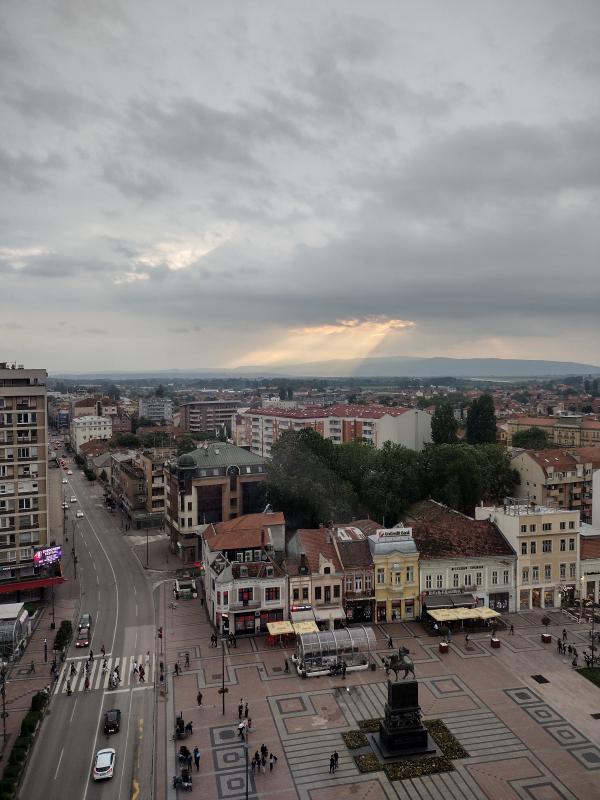
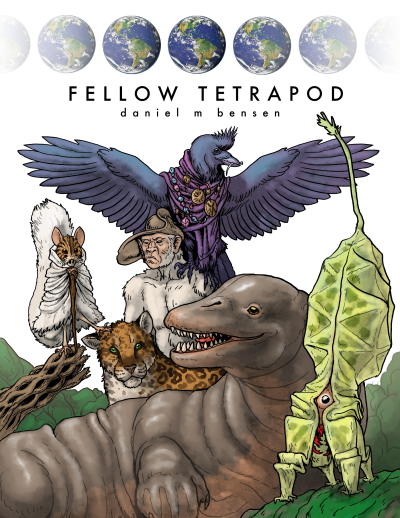

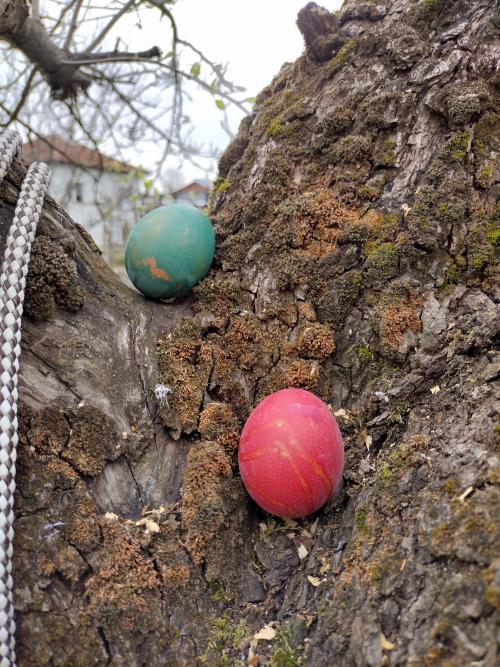
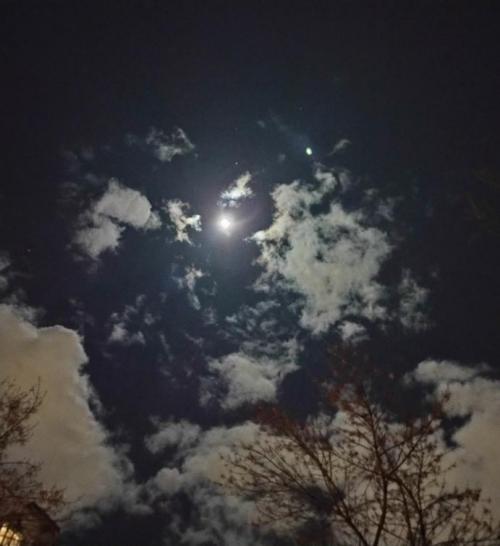
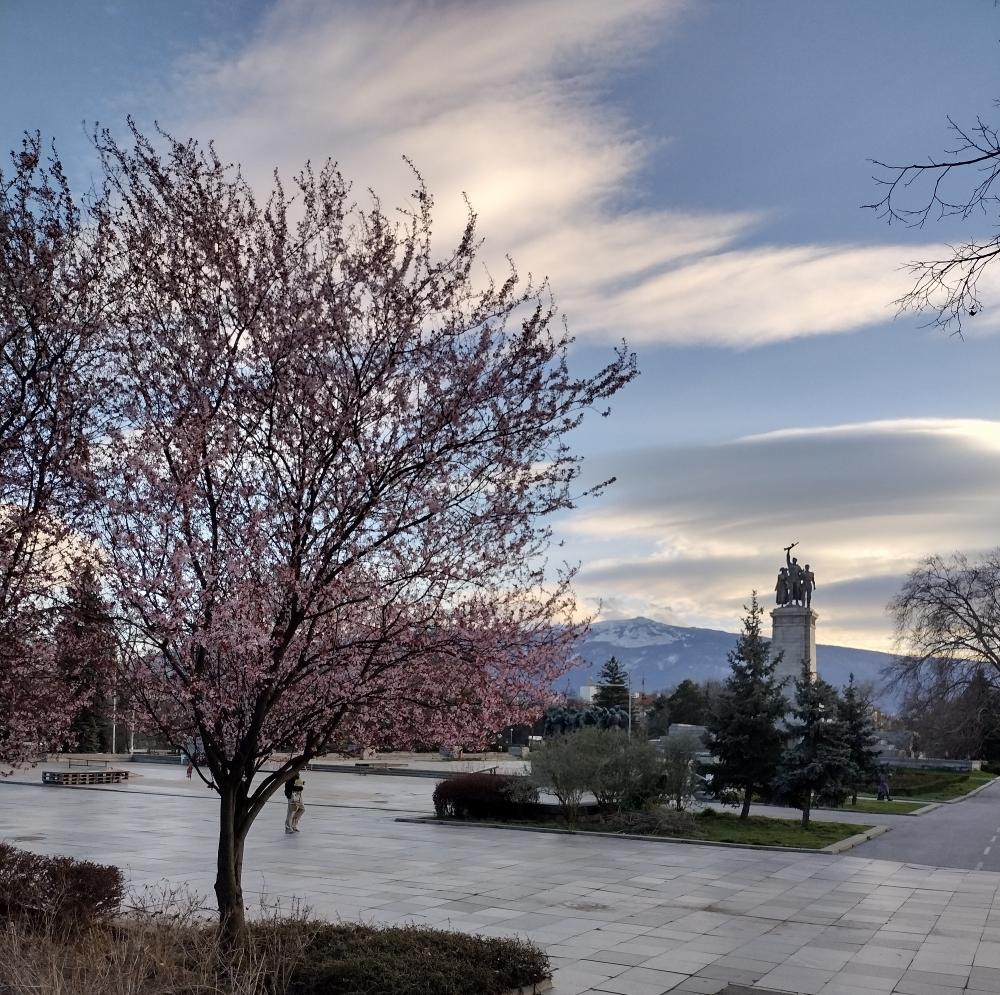

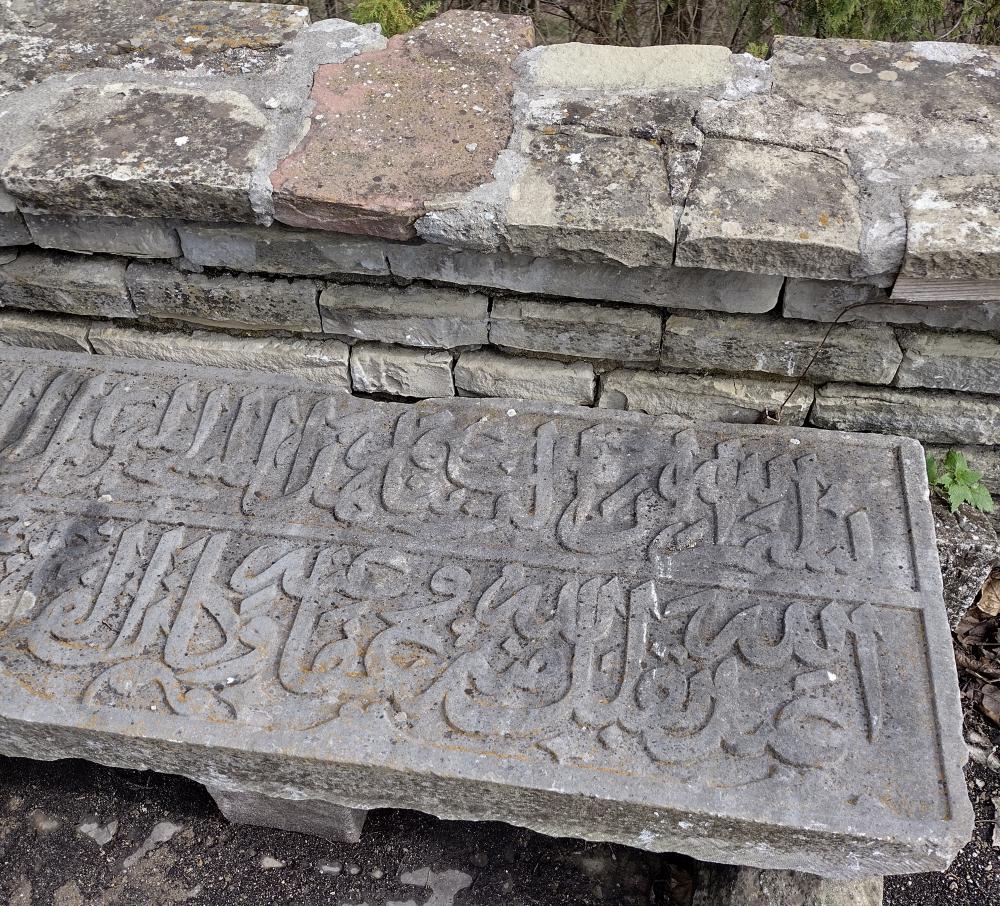


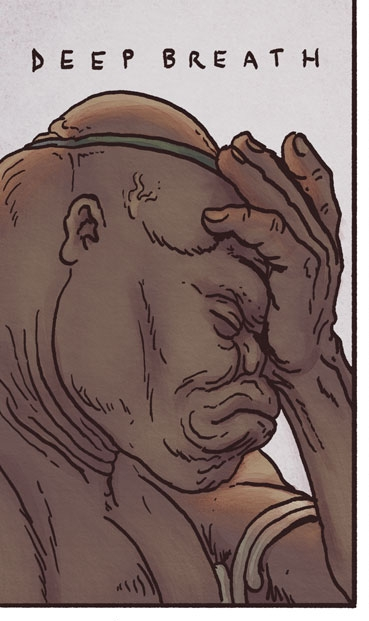


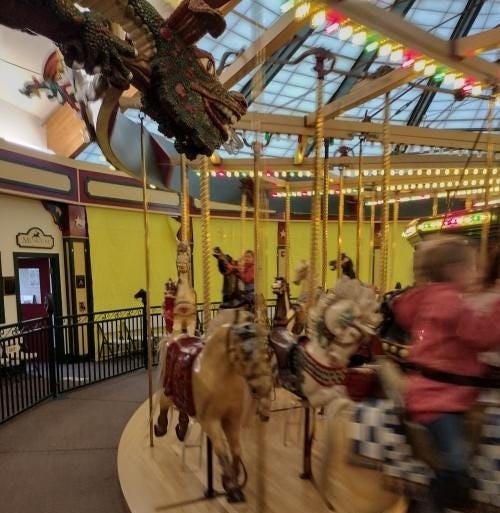
 RSS Feed
RSS Feed